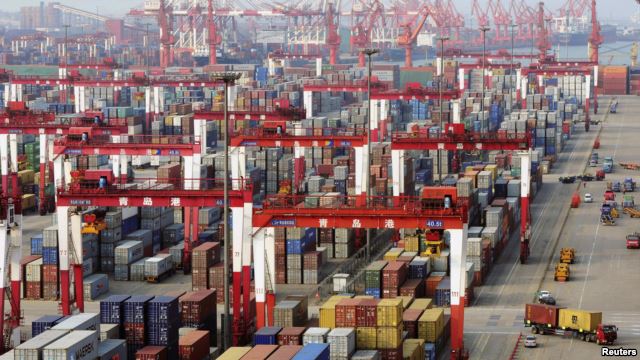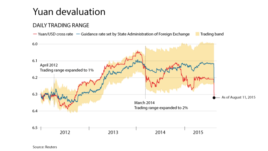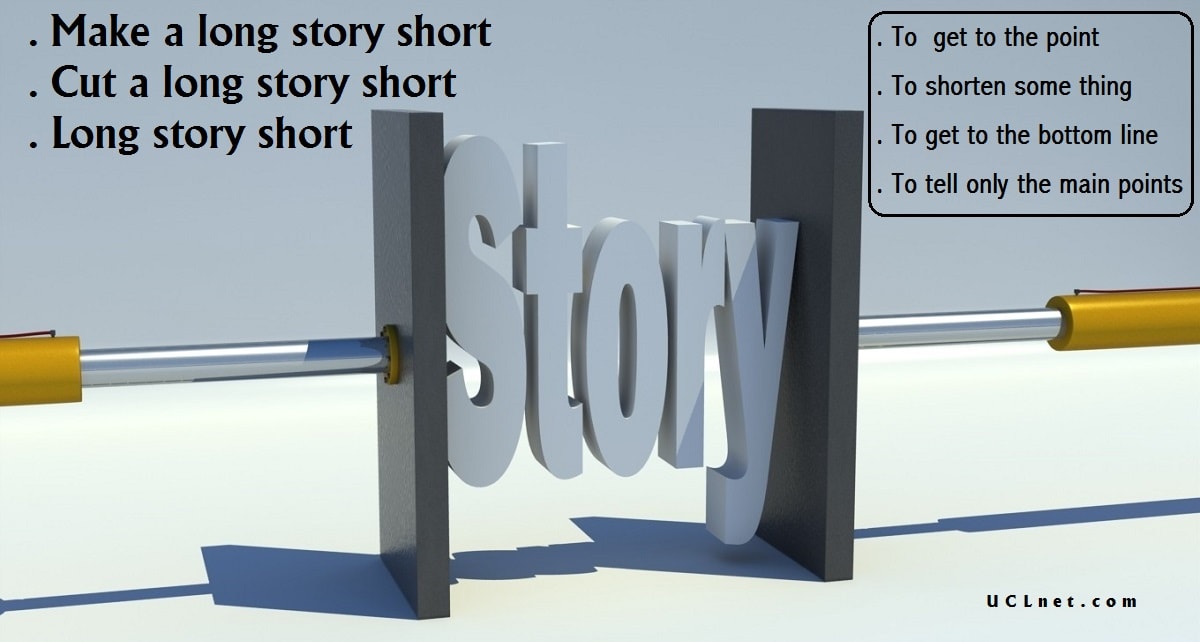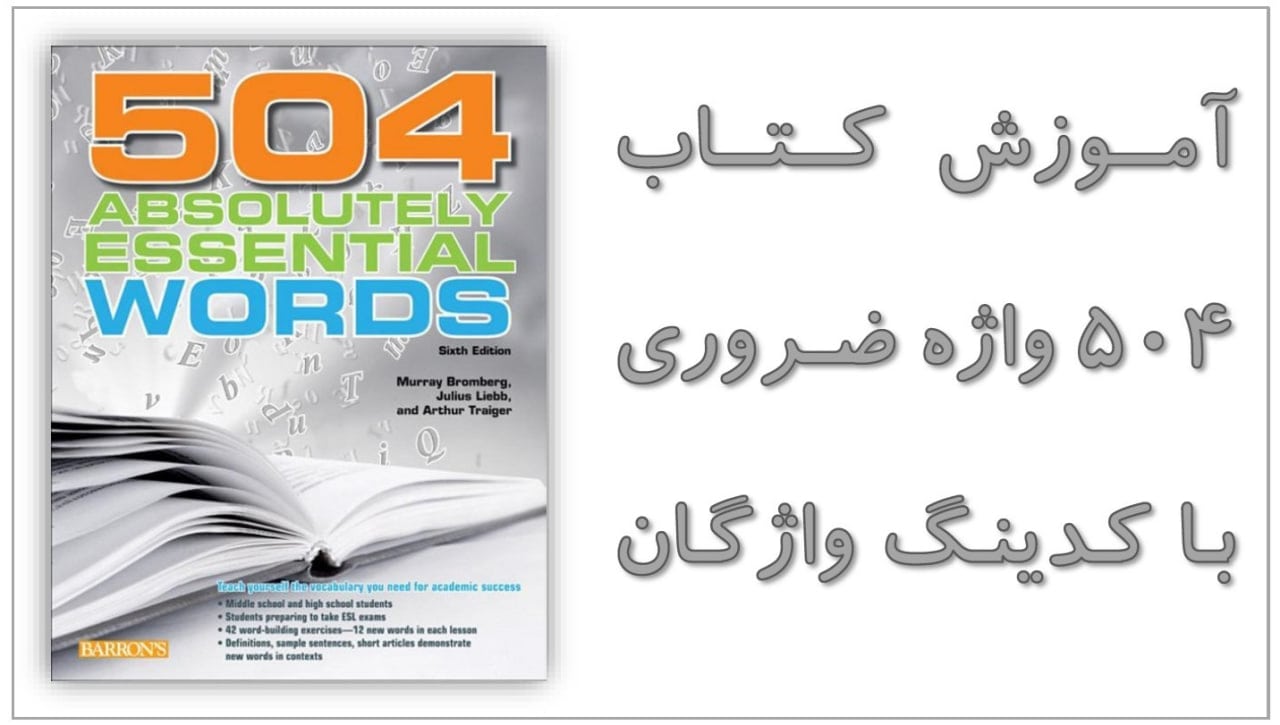China’s Money Drops in Value

China‘s highly controlled currency, the yuan, had its biggest drop in twodecades Tuesday. That was followed, Wednesday, by a 1.6 percent drop invalue. Chinese officials say their devaluation of the currency will let marketsplay a greater part in setting the value of Chinese money. However, expertssay the devaluation also will help Chinese exports.
By Wednesday, markets reacted to news of the decline in the yuan’s value.Stock market measures in Asia were down while stocks in the United Statesshowed early losses.
The value of the Chinese yuan has been gradually rising for ۱۰ years.Tuesday’s fall was its biggest drop since 1994. The drop also took place daysafter China announced that exports had fallen in July by more than eightpercent from the previous year.
Some experts say the recent volatility in the country’s stock market also hasplayed a part. The yuan has remained largely stable against the U.S. dollarfor a year at a little over 6 yuan to the dollar. Other currencies, however, suchas the Euro and Japanese Yen have weakened. That has put pressure on theyuan and hurt Chinese exports.
Economist Brian Jackson is with IHS Economics China Regional Service.
“If we look at the real effective exchange rate, which is against a basket ofcurrencies that compose China’s major trade partners, it’s actuallyappreciated somewhere in the range of around 13 percent. So what that hasmeant is that, over the past year, exports from China to other countriesbesides the United States have become roughly 13 percent more expensive.”
The People’s Bank of China says it is trying to makethe currency more market oriented. In the past, Chinawould set a midpoint for trading each day based on agroup of currency exchange rates. From that point, thevalue could go up or down by two percent, but in manycases, officials would intervene.
Now, the daily level for the range of trading is based on a group of major currencies and the value of the yuanat the close of trading the day before.
China’s loosening of controls on its currency has led other nations in the areato do the same. One day after China changed its method of setting itscurrency value, Vietnam made a similar move. Glenn Maguire is chief Asia-Pacific economist at ANZ bank. He says other Asian governments may alsowant to weaken their currencies to remain competitive.
“If Thailand, Indonesia, Malaysia, Vietnam all decided they were going to winor gain market share by making their currencies significantly cheaper then it’s the average citizens who pay the cost of that policy decision because theypay more for imported goods.”
Some experts are saying the move could be a sign of an opening currencymarket in China. Brian Jackson at IHS Economics says the move could be astep toward transparency. Liao Qun is chief economist at China CITIC BankInternational. He says the move is a step toward the liberalization of theChinese currency.
Mr. Liao says the People’s Bank of China will continue to intervene in moneymarkets since the Chinese yuan is still not freely traded. But, he says it ispossible that the government will intervene less often.
Many in the U.S. Congress have accused China of keeping the value of itscurrency unfairly low to support its exports. However the U.S. Treasury hassaid it is too early to say what the changes will mean.
If China does let the market have more influence, the yuan might become amore international currency. China is seeking to get the International MonetaryFund to add the yuan to its Special Drawing Rights, a reserve of currenciesthat includes the U.S. dollar, Euro, Japanese Yen and British pound.
I’m Mario Ritter.
Bill Ide reported this story from Beijing. Mario Ritter wrote it for VOA LearningEnglish. Caty Weaver was the editor.
_____________________________________________________
Words in This Story
Currency –n. the money of a country
Devaluation –n. to reduce the value of a country’s money in relation to othercurrencies
gradually – adv. slowly over a period of time
volatility – n. likeliness to change in a sudden way
stable – adj. in a good state or condition; not easily changed; steady
oriented – adj. interested in or related to a thing, activity, etc…
midpoint – n. a point that is in the middle; halfway
reserve – n. a supply of something (in this case, money) that can be used at a later time
لینک دانلود فایل صوتی
 UCLnet.com Teaching English; Idioms, Proverbs, Vocabulary, Grammar, Speaking , Reading, Listening, Writing
UCLnet.com Teaching English; Idioms, Proverbs, Vocabulary, Grammar, Speaking , Reading, Listening, Writing













